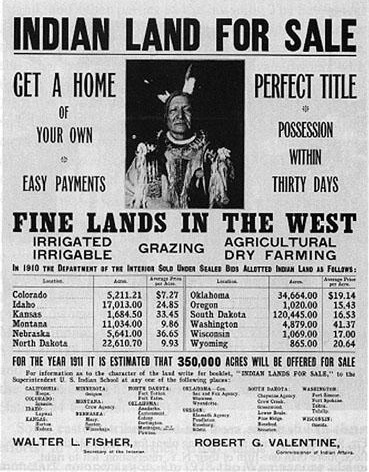When is settling “selling out?” Addressing Cobell’s critics
 Once again, Elouise Cobell’s land trust fight has been pushed back, this time to Oct. 15, 2010.
Once again, Elouise Cobell’s land trust fight has been pushed back, this time to Oct. 15, 2010.
Uh-huh. In my ongoing account of the Cobell case (“War & Trust & the Waiting Game,” June 5, 2010; “How slow can it go?” Aug. 1, 2010), I’ve mentioned that there is opposition within Indian country (and among politicians on Capitol Hill) to the negotiated terms of settlement between government lawyers and Cobell’s legal team.
Count Kimberly Craven among those opposed. Craven cites the pitiable sum agreed to, she questions who (and who doesn’t) collect under the “deal” wrangled by Cobell, and she raises concerns over the possible threat of extinguishment for related rights.
For her part, Cobell (or her lawyers, according to some) has answered these criticisms— not always as thoroughly as one might hope, but she’s certainly not staying silent either.
The upshot is that, once again, here’s an issue where the battle is with the U.S. government, but the war ends up pitting one Native faction against another.
No-one, least of all Elouise Cobell, calls the land trust ‘deal’ an ideal resolution. Both she and her defenders posit an admittedly feeble refrain, “It’s better than nothing,” and frankly that’s what this all comes down to.
Here’s a sampling of conversation in Native circles about the settlement:
“It may seem unreasonable to many of you that Elouise may stand to receive more than the any other plaintiff but, remember, she also must repay $11 million in grants/loans that helped fund the lawsuit.” (Dakota)
“Honestly, this settlement is an insult. This is no reflection on the efforts of Ms. Cobell; it’s really an indictment on the government and its colonizing practices … they knew that the amount could never be calculated, but that it goes way beyond the $3 billion amount. We have a history of having to accept handouts from these people at their discretion, almost like beggars.” (Joseph Collins)
“I think $1.4 billion is a huge ‘slap in the face!’ … what about the mineral rights if and when the lands are reverted back to tribal lands?” (ritareplies)
Such commentary about whether “settling” for a particular solution is laudable or damnable is similar to discussion found elsewhere on mediaINDIGENA, viz., our poll asking whether it was “acceptable” or “offensive” to support a proposed law that went some ways (but not all the way) toward restoring the ability of Native women to pass Indian Status on to their children and grandchildren. Not unlike the Cobell settlement, this divisive issue also pits those leaning toward a small measure of advance against those who view the initiative as the first poison arrow that ultimately infects and undermines the value of everyone’s rights.
Are there flaws in Elouise Cobell’s fight? Yes. Are they worth putting up with? Hmmm. Well, is that not like asking “Do you opt in to Canada’s ‘settlement’ offer on residential school abuses — not to erase the wrong, but mainly to get some measure of peace — or is that selling out?”
Cobell’s team argues that there is an option to “opt out” of the settlement for those who want to fight another day. Critics reply the majority of people don’t understand that option, or that it’d be too difficult to pursue.
I note Elouise Cobell herself is saying she’s only ready to fight ’til mid-October:
“It is becoming more likely that Congress will not pass settlement legislation. Indeed it is unlikely for any settlement or judgment to be conditioned on political acceptance by Congress. … [Nevertheless,] we have gathered a massive amount of support from Members of Congress. I am informed that if we ever come to a vote in the Senate that we have sufficient votes to safely beat any filibuster. For this reason, I have carefully considered our options, consulted with scores of beneficiaries, listened to their concerns, and talked to our attorneys before making a decision to extend the agreement for what is likely to be the last time. I’m especially mindful of the fact that the vast majority of beneficiaries want this settlement to work because it is a fair deal.”
I don’t fault Kimberly Craven and others who see Elouise Cobell as selling Native people short. The way I see it, Cobell’s “short” is a lot taller than all other tangible efforts to date.
But ask yourself: If Cobell’s meagre $3 billion settlement is dropped, how much money is anyone going to see — and when?


I followed some of the stories of the Cobell settlement and all I could say to myself was “wow”. Reparations from the government in the amount of $1000 apiece.!! I have a fairly good job, considering the economy and such but compensating me for a week at my job comes to nearly $1000.
I’m wondering if the real injustice is in the here and now instead of what went on in the 1800’s.